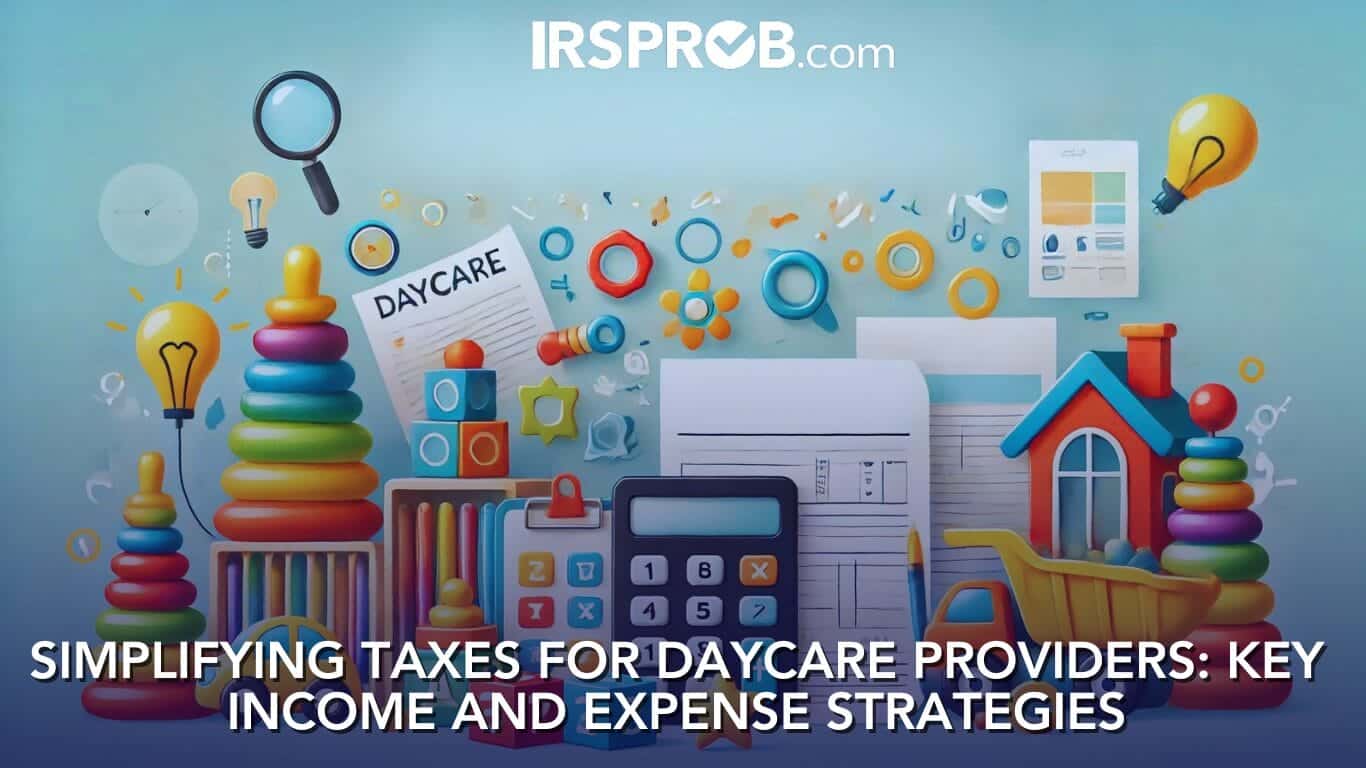
Running a daycare business can be rewarding, but it comes with its own set of challenges, especially when it comes to taxes. Whether you’re operating a home daycare or renting a facility, understanding how to manage your income and expenses is crucial for maximizing your tax efficiency. This guide breaks down the essentials every daycare provider should know to streamline tax preparation and minimize tax liabilities.
1. Income Sources for Daycare Providers
As a daycare provider, you likely receive income from various sources, each of which needs to be carefully tracked and reported. Common income streams include:
- Direct payments from parents or guardians.
- Subsidies from government or charitable organizations.
- Grants, including those for food reimbursements, like the Child and Adult Care Food Program (CACFP).
All of these payments, whether from parents, state agencies, or subsidies, must be reported as part of your gross income. Even reimbursements for daycare-related expenses should be included in your reported income, though you can then deduct the actual expenses incurred.
2. Why an EIN is Essential
Even if you operate as a sole proprietor and have no employees, obtaining an Employer Identification Number (EIN) is highly recommended. Using an EIN instead of your Social Security Number on forms like W-10 (for dependent care identification) adds a layer of privacy and professionalism. Additionally, you’ll need an EIN for:
- Opening a business bank account.
- Tracking income and expenses separately from personal funds.
3. Business Bank and Credit Card Accounts
Maintaining separate bank and credit card accounts exclusively for your daycare business can simplify tax reporting. Use your business bank account for all daycare-related deposits, including cash payments, and for paying business expenses via checks or debit cards. If you use a credit card, it’s best to dedicate one exclusively for business use, ensuring you keep personal and business expenses separate.
4. Tracking Business Expenses
To make the most of tax deductions, it’s essential to accurately track all daycare-related expenses. Common deductible expenses include:
- Advertising: Costs related to print, online ads, and promotional materials like business cards.
- Auto expenses: For transporting children or making business-related trips, you can deduct mileage, tolls, and parking fees.
- Supplies: This includes toys, food for children, cleaning supplies, and other necessary items for running your daycare.
- Business use of your home: If your daycare operates from home, you may be able to deduct a portion of your rent, mortgage, utilities, and maintenance costs. To qualify, you must use part of your home exclusively for business and meet local licensing requirements.
5. Simplifying Food Expenses
Instead of tracking every penny spent on food, daycare providers can use the standard meal and snack rates provided by the IRS. In 2024, the rates for the continental U.S. are:
- Breakfast: $1.65
- Lunch or dinner: $3.12
- Snacks: $0.93 (up to three per day)
Using these rates can simplify the process of calculating deductions, especially when managing food expenses for multiple children.
6. Business Use of Your Home
For home-based daycare providers, part of your home expenses can be deductible. These may include:
- Mortgage interest and property taxes.
- Utilities, security systems, and maintenance costs.
To calculate the deductible portion, you’ll need to determine the percentage of your home used for daycare and the hours spent on daycare activities. This percentage helps you allocate home expenses that can be deducted for business purposes.
7. Additional Considerations
Beyond the basics of income and expense tracking, there are other important considerations that daycare providers should keep in mind:
- Education: Expenses for daycare-related training and seminars can also be deducted.
- Insurance: Costs related to liability insurance or daycare riders on your home insurance policy are deductible as well.
Conclusion
Running a daycare business involves much more than just caring for children. To ensure that you’re maximizing your tax benefits and staying compliant, it’s important to keep detailed records of your income and expenses. Consider working with a tax professional who understands the intricacies of daycare taxes to make the most of your deductions and avoid any costly mistakes.
If you have questions or need further guidance, don’t hesitate to contact IRSProb.com for expert advice tailored to your daycare business.







